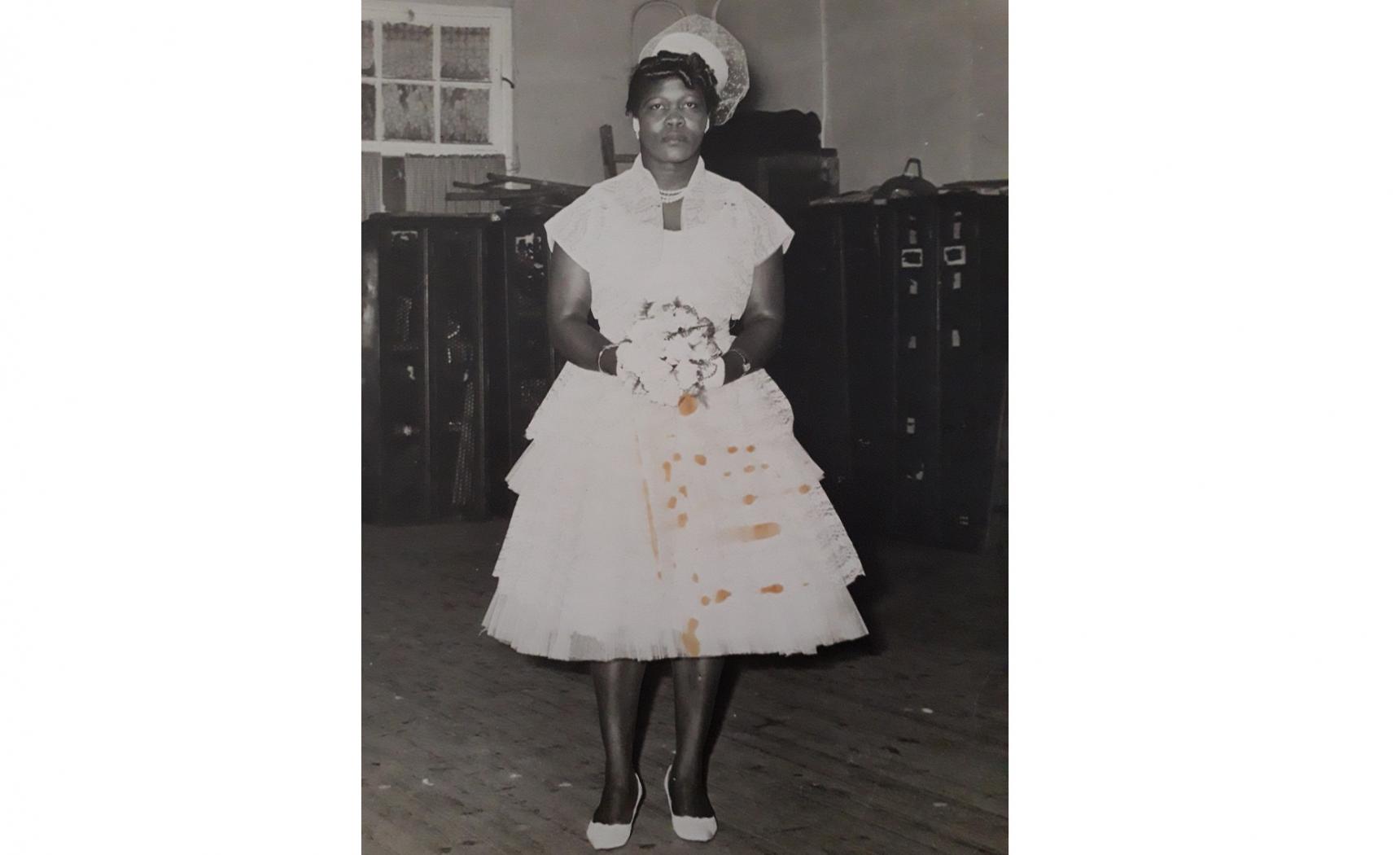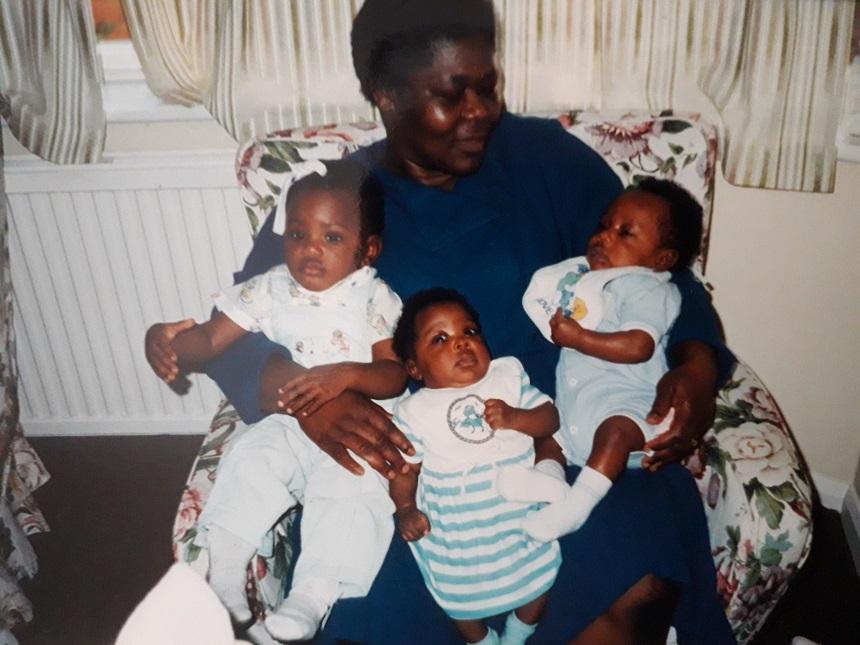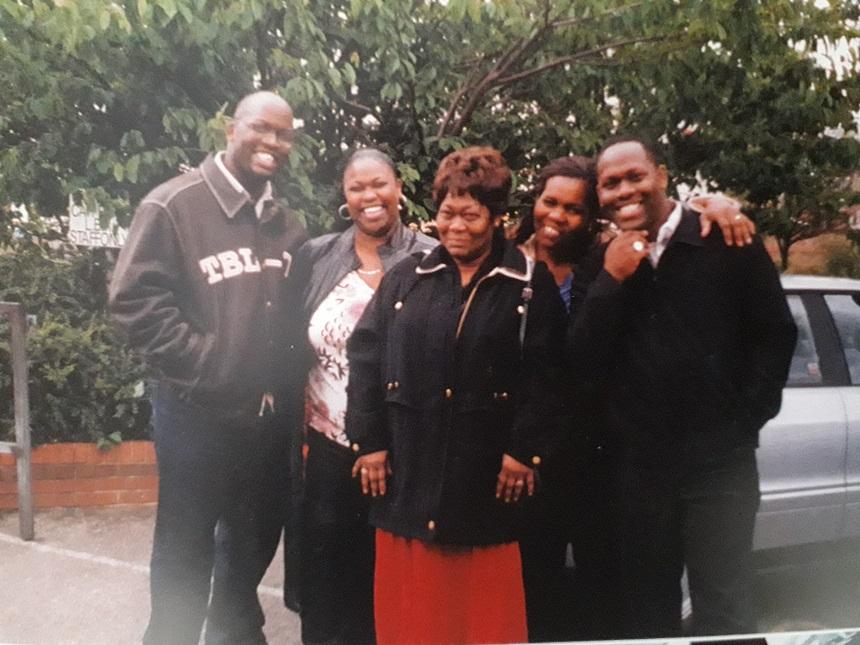
‘For Mum, singing was like healing. In her culture and generation, people didn’t often discuss their problems’
In July, Acceptance Abraham, 80, from London gave Alzheimer’s Society an interview for this year’s Black History Month. Tragically, she died from COVID-19 just six weeks later. Her daughter Nola has allowed us to publish the words Acceptance had already agreed, followed by a tribute of her own.
I am a people person. I love life. I love people. It doesn’t matter if you are Black, white, pink or green. I love you for who you are. You are part of creation – just like me.
I was born on St Vincent, and my parents were successful farmers. They grew sugarcane, arrowroot, cotton, sweet potatoes, bananas, yam.
My Mum had eight children - six girls and two boys, and I was the youngest.
Religion and rebellion
When I was a child, I was brought up Anglican – the same as my mother.
I wasn’t very religious then, but my Mum sent me to Sunday School. And they gave you a bible verse every week to memorise. You had to recite it in front of the class. A lot of that stuck with me.
When I was about 12, I got rebellious. My Mum said I had to help out on the farm, and not go back to school in September. And I cried so much. I was so angry, I didn’t care.
I had a baby at 16. So I was rebellious, but I was naïve as well.
Looking back, I had to go through that. That was my journey.
I had six children. I told them I learned nothing easy. I learned the hard way.
Leaving for England
When I was 20, all my brothers and sisters had left home and went to Trinidad or the US. I was the only one left.
So in 1961, I left for England. At the time, the door was open. The country was needing help. And I wanted to see England and if it was like what they said in my school books.
‘It was my destiny to come here.’

Acceptance pictured on her first day in England
I went to Buckinghamshire – High Wycombe. There were people already there from my village in St Vincent. They looked after me. They all gave me money.
I remember having a tough time at the markets. I saw the cucumbers, but I only recognised them when they were cut open.
In St Vincent, the cucumbers grew as fat as your arm. I couldn’t believe how small these were here. And it was the same with the tomatoes. Back home they were massive.
I ended up doing factory work first and then worked in a canteen. It was there that I got used to the English accent. I couldn’t understand what people said before.
Discovering spirituality
When I came to England, I felt self conscious about going to Church. They would all be saved and they would be looking for a sinner to convert. And I didn’t like that role too much.
But one night I had a dream. I was back in St Vincent, and there was a flood, and I saw myself being swept away by the flood. When I woke up my heart was beating so hard, I thought it might jump out of my clothes. It was 1967. That was when my whole life changed – I gave myself to God.
I am spiritual, but I wouldn’t call myself religious. I think religions are too suffocating. I don’t think there is space enough to grow as a human being.
So I found a circle of like-minded people who gave me time and space to be myself.

Acceptance with three of her grandchildren
Living with dementia
I had a stroke in 2017, and that’s when dementia comes in. I know that my brain has slowed down from this stroke. Sometimes I want to say a word and it doesn’t come. I can’t write like I used to. And I am always falling over.
In May, I had a bad fall, and I am still unsteady on my feet.
I loved going out to Alzheimer’s Society’s Singing for the Brain. I love singing. It gives me a chance to express myself. And it is wonderful to do it with people. Those meetings were special.
But then coronavirus and lockdown came – that was a monster.
Three things helped me get through it. Firstly, every day I read something. Not as much as I used to, but a little - anything spiritual.
Second, I communicate – that is what keeps me sharp. Having people around. People phone me from around the world. Sometimes I end up on the phone the whole day.
Finally, I know my spirituality has helped me survive.
I was born to serve. As a child, at school, we would go on a trip, and my Dad would say, ‘Why is your bag heavier than everyone else’s?’
And I said, ‘Well, it’s good to have something to share.’
Even now I still put sweets in my handbag, just in case. That’s who I am. I love the simple things.

Acceptance with four of her children in the 1990s
Nola Morgan, Acceptance’s daughter, writes:
What my mother writes here, that was her truth. But there is a bit more that I think needs to be said.
Since her stroke, Mum was in a lot of pain. I could see her deteriorating physically. But at the same time, I know she had a lot of happiness in this period.
She never let her poor health make her grumpy. She would laugh regularly, and the times when she got to go out – for instance to Singing for the Brain, or to see her friends and family, gave her real joy - even when she was on crutches!
She truly loved singing. She even wrote her own songs.
Singing was a type of therapy for her. In her culture and her generation, people didn’t often discuss their problems.
It was a shame to talk about the problems you were enduring. And so Church was the place where people poured out their sorrow, and they did it through song.
For Acceptance, singing was like healing. I think that was why she appreciated Alzheimer’s Society and Singing for the Brain so much.
As a family, we looked after each other. Mum was supportive of me at the lowest points in my life. In recent years, my daughter, Zara, went to do Mum’s shopping every fortnight. We were all part of each other’s life.
I will miss Mum for who she was.



Claire
saysFirstly to Acceptance's family, I'm sorry for your loss.
Thank you for sharing Acceptance's story. It sounds as though she was an exceptional, thoughtful, and giving person. I love the words about the sweets in her handbag "just in case. "
Miller Caldwell
saysA wonderful life of family and laughter.
A Tale to tell and honour much later
A family to cherish; a family in grief
A proud family left; to see the fallen leaf.
Many blessings abound for a life now gone
There are no losers, yes, you have all won.